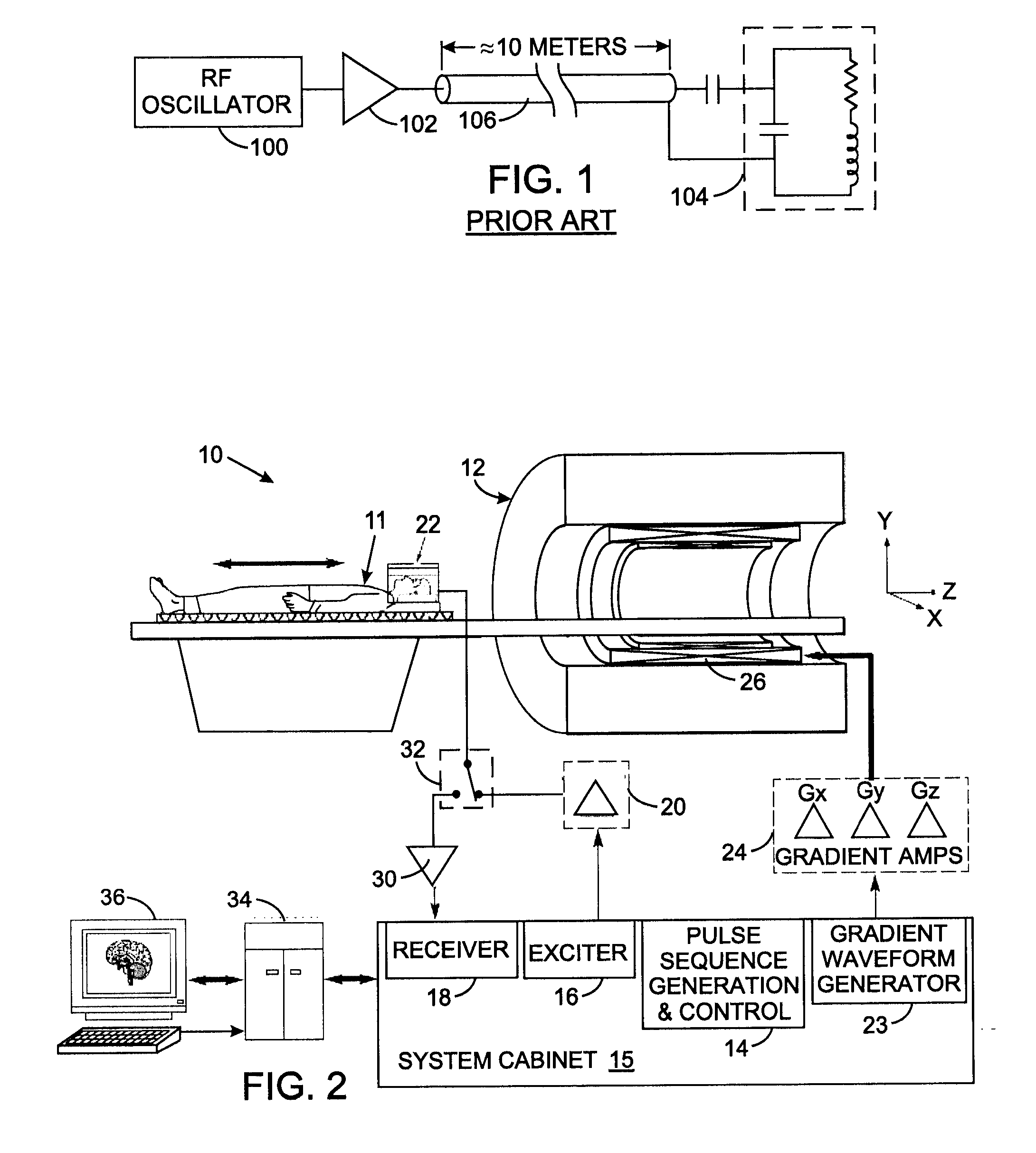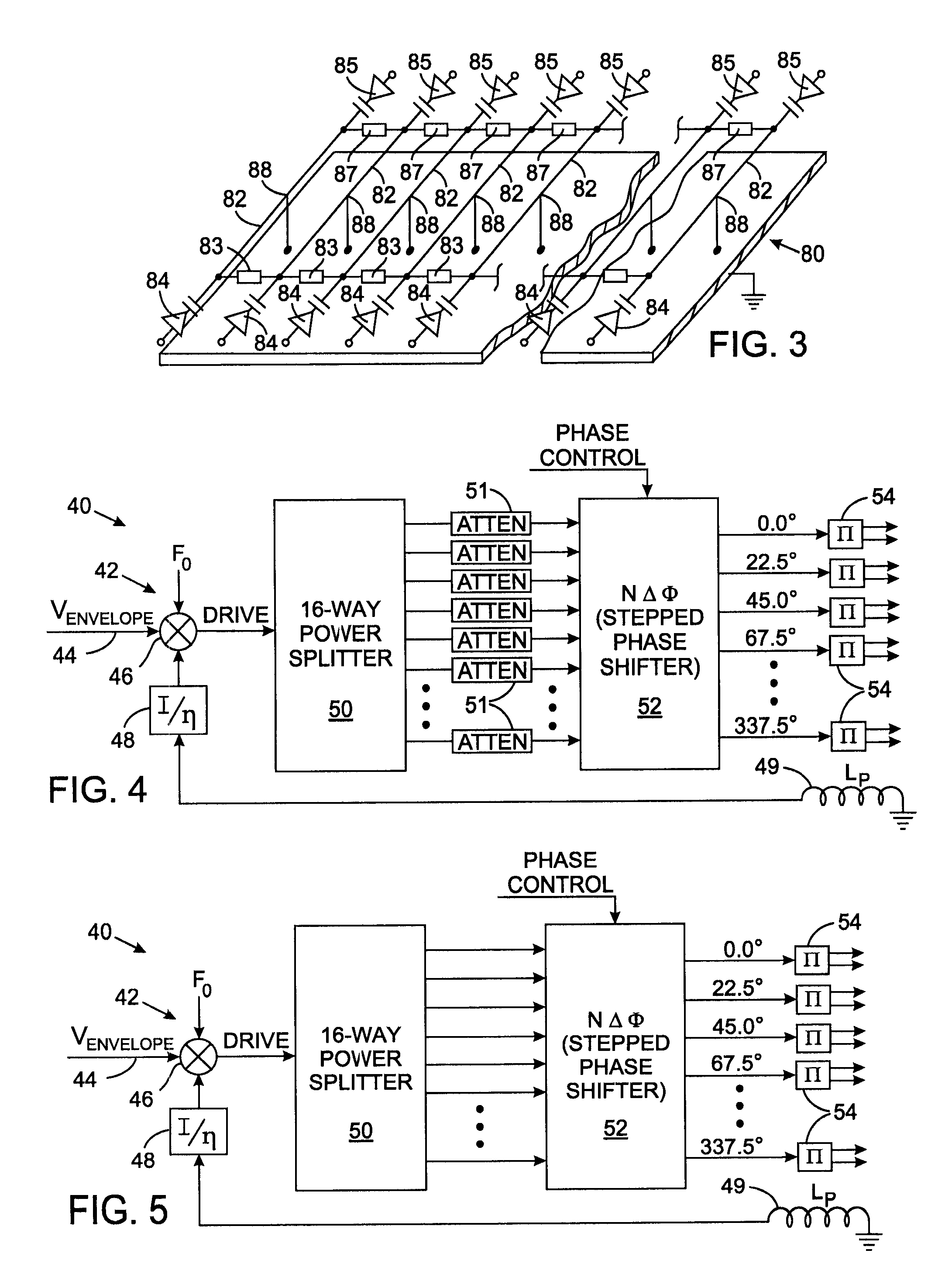Magnetic resonance imaging system with a class-e radio frequency amplifier
a radio frequency amplifier and magnetic resonance imaging technology, applied in wave based measurement systems, instruments, and reradiation, etc., can solve the problems of increased power dissipation, low amplifier efficiency, and high temperature in the scanner
- Summary
- Abstract
- Description
- Claims
- Application Information
AI Technical Summary
Benefits of technology
Problems solved by technology
Method used
Image
Examples
Embodiment Construction
[0033] With initial reference to FIG. 2, an imaging scan in an MRI system 10 commences with the patient 11 being prepared by a technologist who is responsible for patient safety and placement of a transmit / receive local coil 22 on the patient. Once the landmark (origin of the scan location) is set and the patient 11 positioned inside the scanner 12, the prescribed protocol is entered into the processor 34. The protocol is a set of parameters for the imaging pulse sequence being prescribed. When the protocol is loaded, the pulse sequence generation and control unit 14 in the system cabinet 15 specifies the magnetic field gradient and radio frequency (RF) waveforms and prepares the system 10 for data acquisition. The X, Y, and Z magnetic field gradient waveforms produced by generator 23 are amplified by the gradient amplifiers 24 (also known as “gradient drivers”) and fed to the gradient coils 26 in accordance with the waveforms prescribed by the current protocol.
[0034] The RF subsys...
PUM
 Login to View More
Login to View More Abstract
Description
Claims
Application Information
 Login to View More
Login to View More - R&D
- Intellectual Property
- Life Sciences
- Materials
- Tech Scout
- Unparalleled Data Quality
- Higher Quality Content
- 60% Fewer Hallucinations
Browse by: Latest US Patents, China's latest patents, Technical Efficacy Thesaurus, Application Domain, Technology Topic, Popular Technical Reports.
© 2025 PatSnap. All rights reserved.Legal|Privacy policy|Modern Slavery Act Transparency Statement|Sitemap|About US| Contact US: help@patsnap.com



